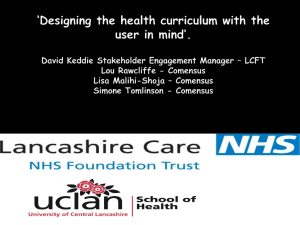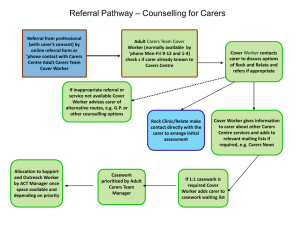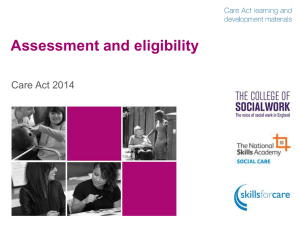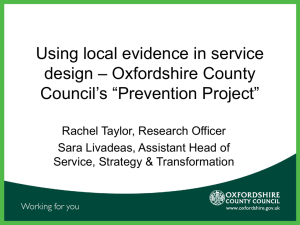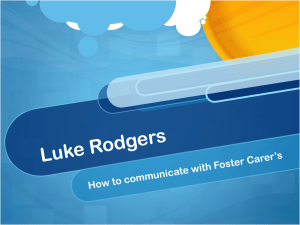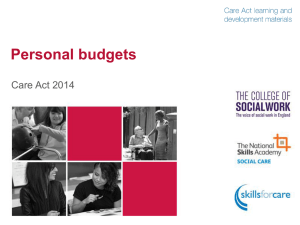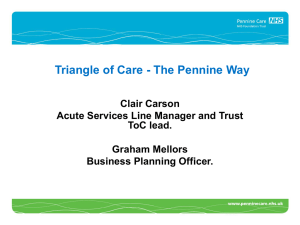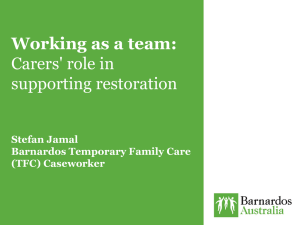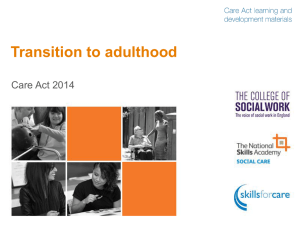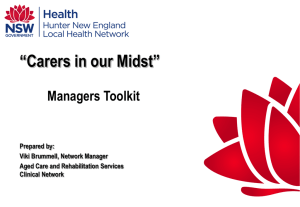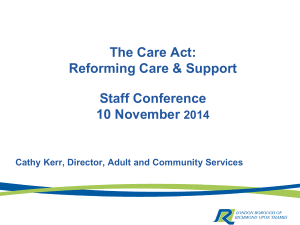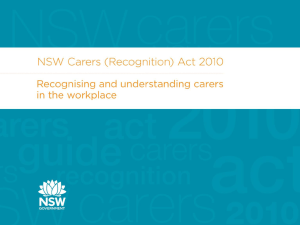Alison Parkinson
advertisement
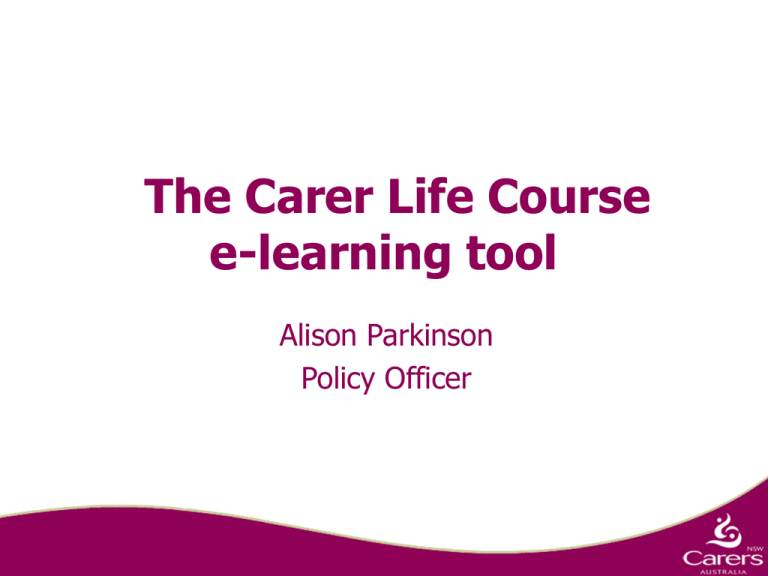
The Carer Life Course e-learning tool Alison Parkinson Policy Officer The Carer Life Course Framework • An evidence-based approach to effective carer education and support • Developed by Dr Deanna Pagnini in 2005 • Original framework was mental health specific • Expansion of the Framework Final Report, by Dr Pagnini 2008 Constants across the phases Phase 1: Something is wrong • Sense that something is not quite right with the care recipient or • The carer may be aware of the illness or condition but not yet understand it Phase 2: Confirmation • A doctor or health care professional confirms that something is not right • The extent of the illness or condition is learnt Phase 3: Adjusting • Initial shock wears off • The carer begins adjusting and readjusting to the caring role Phase 4: Managing • The carer learns how to incorporate caring into everyday life • Some carers cycle between adjusting and managing Phase 5: Purposeful coping • Purposeful and proactive caring, rather than reactive • The carer may face the same issues as faced in phases 3 and 4, but is more able to handle them Phase 6: End of caring role • End of the caring role • The impacts of caring do not end with the caring role Constants across the phases Impact of the degree of the care recipient’s wellness on the carer Impact of the carer’s other relationships on his/her wellbeing Ongoing grief and loss Ongoing need for support Impact on financial resources Need for carers input to be heard Worry about what will happen when the carer is gone Fear about care recipients health and safety The project • To develop a web-based or online tool, based on the Carer Life Course Framework • Nine month time frame • Funded by NSW Health • Guided by feedback from key stakeholders including key agencies, service providers and carers Why an e-tool? • Users are able to work through at their own pace in their own time • Caters for carers with time constraints resulting from caring role • Accessible to rural and regional carers • Increasing levels of access and use of Internet in community, confirmed in Carers NSW 2010 Carer Survey Impacts • Normalises carers experiences • Shows carers they can reach a place of purposeful coping • Helps service providers to understand carers experiences and needs at various phases Impacts (cont…) • Used by mental health services as an audit tool • Used by NGOs as a basis for advocating for better support for carers • Used by NGOs in their direct work with carers • Used in the development of NSW Health’s Family and Carer Mental Health Program At any one point in time we could take a carer and place them into the various phases and have a general idea about the kinds of issues they face, the information they need, and the kind of supports that might be helpful. Similarly the framework could also be used as a tool to track or discuss an individual carer’s journey. D Pagnini, 2005 About the e-tool • Carer Life Course website hosts: – Resource page with factsheets, websites and key services – Resource pages with Aboriginal, CALD, mental illness, cancer, disability and chronic condition focus • The e-tool is linked to the Carer Life Course website Preview of e-tool Interactive modules • • • • • • • Description of phase Carer stories Issues faced Carer relationships Carer needs Checklist Tips for service providers Feedback Positive feedback from testing phase: • Visuals • Format • Accessible nature of the information Carer specific feedback Carers reported: • Immediate connection and sense of belonging • Finding comfort or familiarity with the carer stories • Quotes make carers feel “not alone” Future directions • Potential for expansion from general model to include specific models (mental health, cancer) • Funding secured to expand and improve etool in 2011 • Evaluation to be conducted after 12 months www.carerlifecourse.com.au Alison Parkinson Policy Officer Carers NSW P: 02 9280 4744 alisonp@carersnsw.asn.au www.carersnsw.asn.au www.carerlifecourse.com.au
